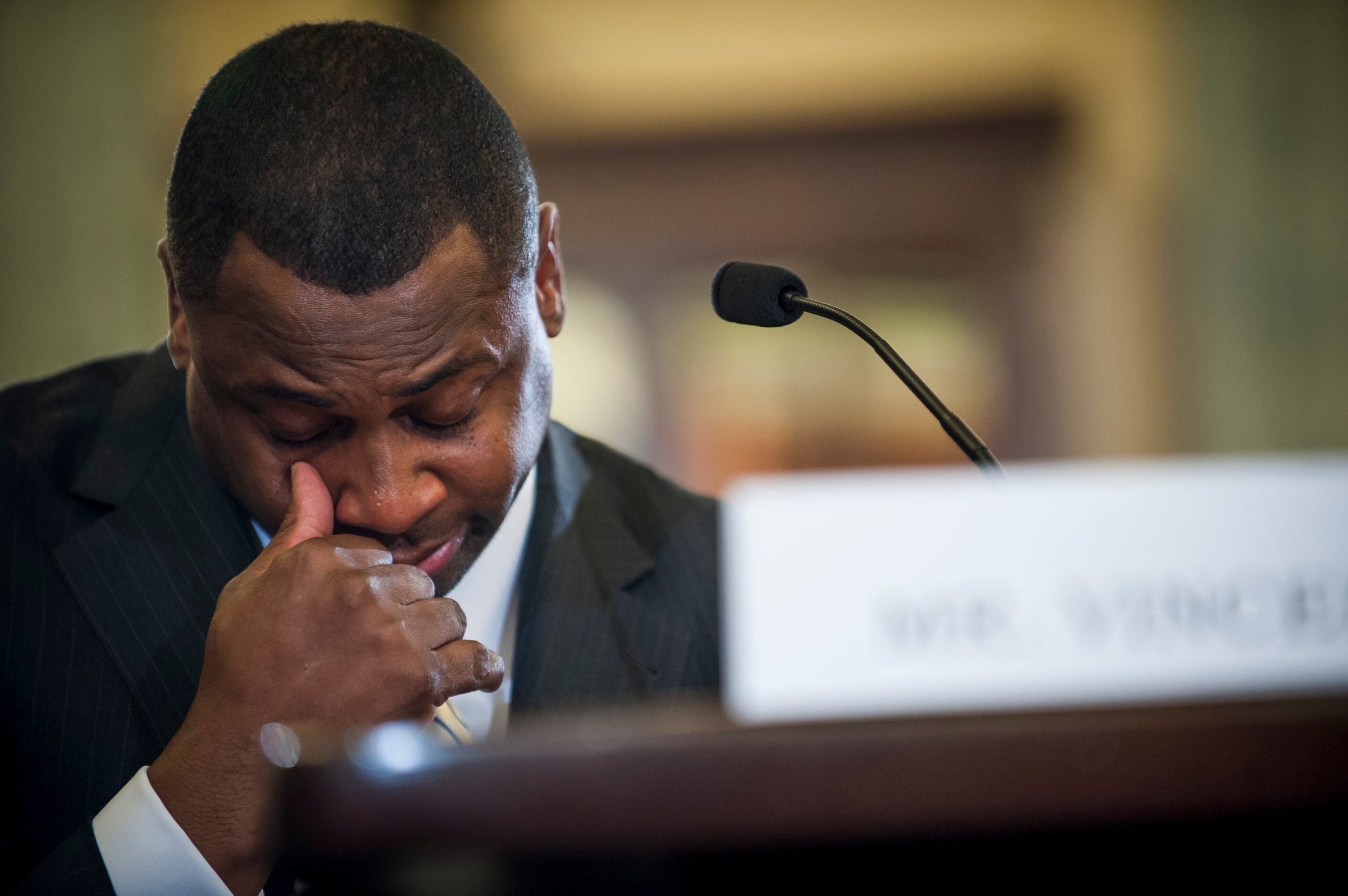
When the issue of domestic violence was thrust into the public eye as it was this year for the NFL, it conjured up memories and feelings that I didn’t want to revisit. No one wants to relive the shame, anger, and sorrow of a childhood that witnessed firsthand violence against his mother. But relive it I did. In a way, it stirred my innermost being and brought me to the realization that today, unlike when I was 8 years old, I was in a position to do something about it.
Amid the harsh criticism of the news media and the loud public outcry knocking hard at the NFL’s doors, I felt responsible to inform the process with my childhood experience and my lifetime dedication to end domestic violence, and to participate in the solution, which to me meant looking at the severity of these violent criminal acts and their impact on the victims and survivors. We had to shut out the din of demands, conjectures, and accusations to hear that still small voice that said, “do the right thing.”
A team assembled under Commissioner Roger Goodell earnestly, sincerely and methodically worked toward understanding the complexity of domestic violence, sexual assault, and child abuse. We did a lot of listening. We did a lot of learning. As we shaped our policy and process, the severity of the crime and the care of the victims and survivors were foremost in our minds.
The experts said that we needed to keep discipline in house. They told us to conduct our own investigations because the legal system would fail victims with plea bargains and insufficient punishment. They emphasized that we needed to provide education, resources, and strict policies to ensure that victims were protected and encouraged to speak up, and that no one would interfere with them getting help.
We were warned about applying both compassion and control to deter offenders and protect victims—that while this is an admirable idea, it doesn’t work in the real world. We learned that clear and certain control can deter offenders, but compassion, while a worthy goal, will undermine the belief that control is certain.
We also learned that we must define our personal conduct policy in terms that reflect the values of our organization. We were told that process will always be debated by those who are being disciplined by it; that if they can’t debate process, they will claim the discipline is unfair.
Statistics had to be resisted as well. They sterilize the reality. When you are that little boy listening to your mother’s cries for help coming from the next room—when you are that kid who is dialing 911, you are not thinking about being a statistic. You are in need.
Getting it right does not necessarily mean that once we announce our new personal conduct policy that everything will be fixed. This is a journey. There will be mistakes. There will be successes. And while the overwhelming majority of current and former players in the NFL are excellent husbands and fathers, over the long haul, there will need to be a culture change throughout the NFL and the business of football built on the cornerstone of character.
Those defending the perpetrators of these violent criminal acts also must experience a culture change. The public has made it clear that the privilege of playing football, or any sport for that matter, cannot override the rights of victims and survivors of domestic violence, sexual assault, and child abuse. They will have to gaze into the mirror of morality to reflect on where they draw the line so that perpetrators do not depend on representation that says you can beat your child or wife during the week and play on Sunday as a right of due process.
It comes down to a question: How do you defend the indefensible? This is also a question for society. It is a question for those role models that young men and women admire. It is a question for all of us to consider the answer upon which we should stand—we must say “no more” to acts of violence against women and children. We must be part of the conversation. We must take action in a society where the noise of self-indulgence often drowns out that still small voice that whispers “do the right thing.”
Troy Vincent is Executive Vice President of NFL Football Operations and a former player in the NFL.
More Must-Reads from TIME
- Donald Trump Is TIME's 2024 Person of the Year
- Why We Chose Trump as Person of the Year
- Is Intermittent Fasting Good or Bad for You?
- The 100 Must-Read Books of 2024
- The 20 Best Christmas TV Episodes
- Column: If Optimism Feels Ridiculous Now, Try Hope
- The Future of Climate Action Is Trade Policy
- Merle Bombardieri Is Helping People Make the Baby Decision
Contact us at letters@time.com